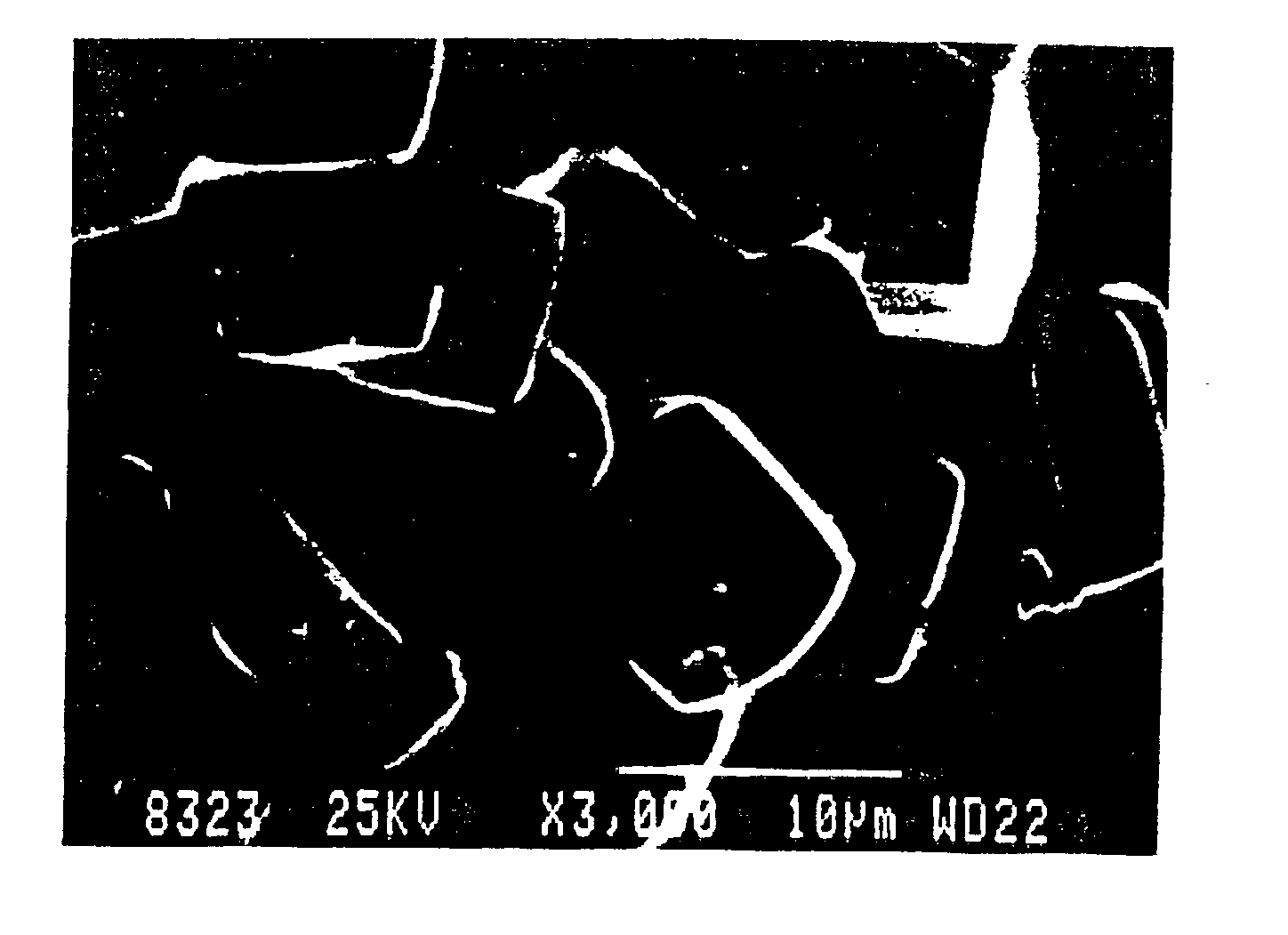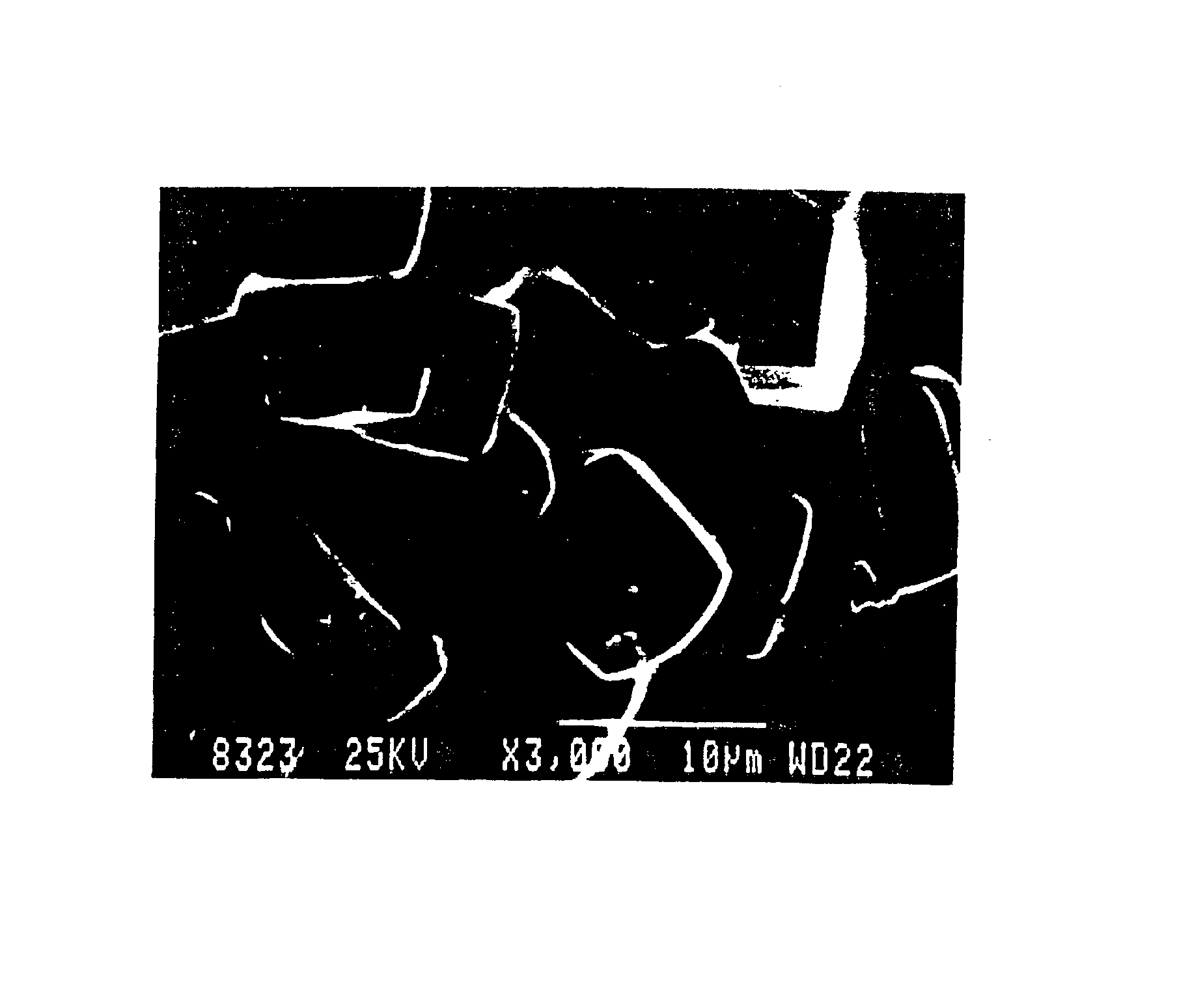Glass ceramic and metal substrates with a self-cleaning surface, method for the production and use thereof
a technology of which is applied in the field of glass ceramic and metal substrates with a self-cleaning surface, and the method of production and use thereof, can solve the problems of poor resistance to abrasion, low adhesion, and self-cleaning effect, and achieves good self-cleaning effect, simple method, and high abrasion resistance.
- Summary
- Abstract
- Description
- Claims
- Application Information
AI Technical Summary
Benefits of technology
Problems solved by technology
Method used
Image
Examples
examples
General information on the production of substrates with a self-cleaning surface follows. Details such as the products used, relative quantities and baking conditions to obtain the structured surface and conditions to make it hydrophobic can be found in the Tables.
Direct printing: Glass frit and structure-forming particles were made into a paste in a known manner with a printing medium which can be diluted with water (No. 80858 from dmc2 AG) or a purely organic one (No. 80820 from dmc2 AG), and the printing paste was applied to the substrate by screen printing.
Indirect printing: Glass frit and structure-forming particles were made into a paste with a screen printing oil (No. 80820 from dmc2 AG). The printing method was screen printing on transfer paper; after drying a covering film was formed. The printed image was applied in known manner to the substrate to be decorated.
Electrostatic application: Glass frit and structure-forming particles mixed with Siloxane H68 (Weinstock & Sieber...
PUM
| Property | Measurement | Unit |
|---|---|---|
| mean particle diameter | aaaaa | aaaaa |
| volume ratio | aaaaa | aaaaa |
| volume ratio | aaaaa | aaaaa |
Abstract
Description
Claims
Application Information
 Login to View More
Login to View More - R&D
- Intellectual Property
- Life Sciences
- Materials
- Tech Scout
- Unparalleled Data Quality
- Higher Quality Content
- 60% Fewer Hallucinations
Browse by: Latest US Patents, China's latest patents, Technical Efficacy Thesaurus, Application Domain, Technology Topic, Popular Technical Reports.
© 2025 PatSnap. All rights reserved.Legal|Privacy policy|Modern Slavery Act Transparency Statement|Sitemap|About US| Contact US: help@patsnap.com


